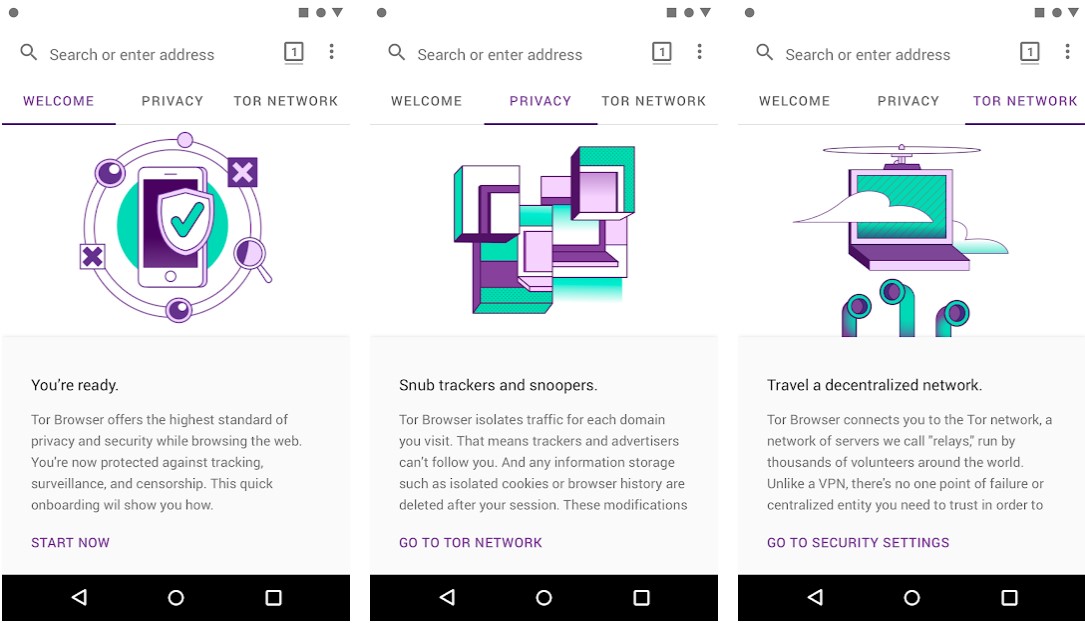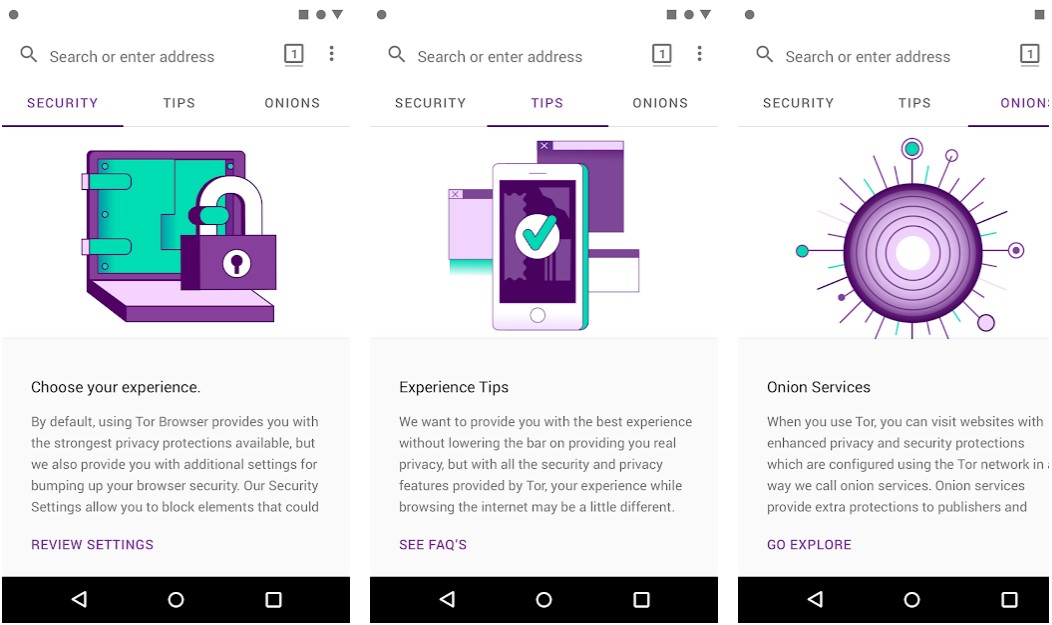
The stable version of Tor Browser for Android 8.5 has been released today on Google's Play Store, with built-in anti-tracking, fingerprinting blocking, and multi-layered encryption capabilities for censorship-circumvention.
This is the first official and stable Android version released by the Tor Project on Google's Play Store, with the app to also be available via the F-Droid community-maintained Android software repository.
The team behind Tor Browser for Android released the first alpha version of the Android app in September 2018 and, since then, they've worked around the clock to bring as many of the features available in the desktop app to the mobile version.

According to the Tor Browser 8.5 press release:
We made sure there are no proxy bypasses, that first-party isolation is enabled to protect you from cross-site tracking, and that most of the fingerprinting defenses are working. While there are still feature gaps between the desktop and Android Tor Browser, we are confident that Tor Browser for Android provides essentially the same protections that can be found on desktop platforms.
Android has been added to the list of supported platforms because "Mobile browsing is increasing around the world, and in some parts, it is commonly the only way people access the internet. In these same areas, there is often heavy surveillance and censorship online, so we made it a priority to reach these users."
A list of features that still need to be added to the Android version of Tor Browser is available in the project's issue tracking system.
The announcement also notes that, while a version of Tor Browser for iOS cannot be released on Apple App Store because of various restrictions imposed by Apple, the Onion Browser app developed by Mike Tigas and the Guardian Project is the recommended option for the iOS platform.

On May 6, the Tor Project team announced the release of Tor Browser 8.0.9 for desktop platforms which fixed an issue that would automatically disable the NoScript and HTTPS-Everywhere used by the app after Mozilla let their intermediate signing certificate expire.
Two days later, Mozilla announced in the company's Research Grants 2019H1 report an interest to "potentially integrating more of Tor into Firefox, for the purposes of providing a Super Private Browsing (SPB) mode for our users."
"Integrating Tor into Firefox would bring real private browsing and a safer internet experience to an unprecedented number of people around the world. But Tor has never been deployed at this scale, and there are a lot of considerations to research before Mozilla gives this a try," said the Tor Project team in reply.


Post a Comment Community Rules
You need to login in order to post a comment
Not a member yet? Register Now